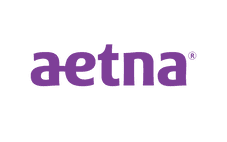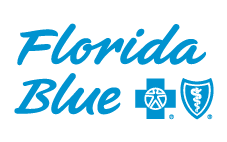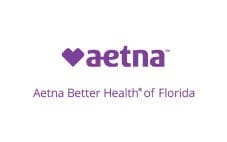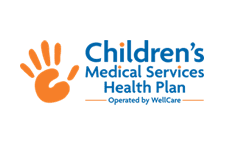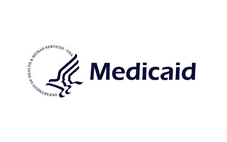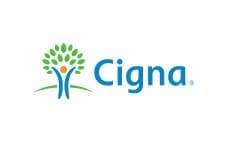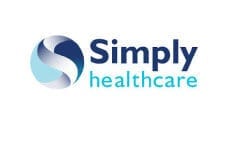Language Therapy in Miami
Support and care for children who have difficulties with communication
What Does A Language Therapist Do?
How Do I Know If My Child Needs Support?
How Does Always Keep Progressing Help My Child?
What Do I Do If I Think My Child Needs Support?
Speech-Language Pathologists and Therapists
Introduction to Language Therapy
Language therapy refers to therapy to help children who are having difficulties in various areas of language development. Speech-language pathologists, otherwise known as speech therapists, are highly trained clinicians in the field of communication sciences and disorders.
Speech therapists are licensed to be able to evaluate and treat children who have difficulties with speech and language development.
Although speech and language are terms that are often used interchangeably, they are actually two different things. A child can have difficulties with either speech or language or have difficulties in both areas. Language therapy, specifically, addresses delays in a child’s ability to understand language and speak, as well as how to use social language. In other words, language therapy targets expressive language skills, receptive language skills, and pragmatic skills.
If you are concerned with your child’s language development, an SLP can help answer any of your questions!
What Does A Language Therapist Do In Language Therapy?
Speech-language pathologists, often referred to as speech therapists, are highly trained experts in the field of communication sciences and disorders. Speech-language pathologists are qualified to evaluate and treat children and adults who have difficulties with speech, language, feeding, and swallowing.
Although speech and language are terms that are often used interchangeably, they are actually two different things. Speech is how we say sounds and words while language refers to the words we use and how we use them to share ideas and communicate desires. A child can have difficulties with either speech or language or have difficulties in both areas.
Speech-language pathologists provide intervention services to help children with these difficulties along with other issues such as feeding/swallowing or other communication disorders. In language therapy specifically, speech therapists address the following:
- Comprehension/listening skills (understanding of what is being said to him/her, follow directions)
- Grammar: Use of grammatical markets to form complete and accurate sentences
- Verbal output: Increasing length of utterances, expanding on his/her current language
- Nonverbal communication: Use of gestures/signs/pictures/devices to communicate.
- Questions: Your child’s ability to formulate questions.
- Social/pragmatic skills: Following the social rules of conversation and play
- Literacy skills: Pre-literacy skills i.e. holding a book appropriately and recognizing print, reading/writing skills
How Do I Know If My Child Needs Language Therapy?
Language therapy is an intervention service which aims to improve the overall communication abilities of children with a language delay.
Language therapy techniques are used by SLPs to help develop and improve communication (socially, receptively, and expressively). An evaluation or assessment is done by an SLP before beginning therapy to create an appropriate, individualized plan of care for the client. For children, language therapy can take place in your home, classroom, hospital, or private practice clinic. Your child can also receive language therapy services safely from the comfort of your own home through teletherapy!
Language therapy exercises and activities are catered to the child’s specific needs depending on the disorder, age, and specialized requirements.
In a language therapy session for children an SLP might:
- Engage with child through talk, play, music, and games, using a variety of toys and books to stimulate language development.
- Teach children how to comprehend language input and increase language output using a variety of techniques.
- Provide parents with tools and resources to encourage language development and practice carryover of therapy activities into the home!
Early intervention is especially beneficial for children. With early intervention, language therapy can improve communication and boost self-confidence!
How Does Language Therapy Always Keep Progressing Help My Child?
Many individuals can benefit from language therapy services. Alongside with treating disorders related to speech, language, feeding and swallowing, SLPs can also service individuals with the following diagnoses:
- Autism Spectrum Disorder
- Cochlear Implants
- Learning Disorders/Learning
- Disabilities
- Pervasive Developmental Disorder
- (PDD)
- Speech Muscle Weakness
- (Dysarthria)
- Sensory Integration Disorder
- Cleft lip/cleft palate
- Cerebral Palsy
- Down Syndrome
- A laryngectomy
- A traumatic brain injury (TBI)
- Dyslexia
- Accent Reduction/modification needs
- Alternative and Augmentative
- Communication (AAC)
- Oral-Motor Disorders
What’s next
What Do I Do If I Think My Child Needs Support?
Firstly, we want to assure you that there is no need to worry. We are here to guide you through every step of the way and help you to find the support that your child needs! If you feel that your child is in need of our services, you will follow four major steps: book a free consultation, complete the intake form, schedule the initial evaluation, and schedule treatment sessions.
Each step of this process is very important, and can get complicated when using insurance. We specialize in working with insurance, and are here to walk you through the process and make things as easy and pain-free as possible!
Of course, if you are opting to use private pay, these steps will be simplified.
1. Consultation
2. Intake Form
3. Evaluation
Once we have verified your insurance and received necessary documents, such as a doctor’s referral order (some insurances require authorization for evaluations, and some don’t), you will be all set to start! Our scheduling coordinator and administrative staff will contact you right away to schedule your initial evaluation based on your availability. Following the evaluation, we will formulate a personalized plan of care and call/meet with you to define your child’s goals and type/duration/frequency of treatment.
3. Treatment
Once all documents are in place and your insurance approves services, our scheduling coordinator and administrative staff will call to schedule treatment sessions at times that suit you and begin your child’s journey towards success!
Related
Language Therapy Articles
Setting the Stage: What Materials You Will Need for Your Child’s Teletherapy Session
Prior to your sessions, our scheduling team and/or therapist will send you a link to join the virtual therapy session. The therapist will also notify you of any toys you may need to use to participate in the session. As a parent, you play a crucial role in ensuring...
10 Incredible Benefits of Art Therapy For Children
Introduction Art therapy is the use of art-making and the creative process to support the more traditional therapeutic process. Sessions are facilitated by a board certified, registered art therapist to address desired goals. Art therapy sessions will often...
Potty Training: Tips For Boys & Girls From Our Occupational Therapists
As a parent, one of the most significant milestones in your child's life is potty training. It's a crucial step in their development that requires patience, consistency, and understanding. However, figuring out whether your child is ready for potty training can...
Insurances
We Accept Most Major Insurance Plans
Don't see your insurance here? Contact us and we will help you get the services you need!





